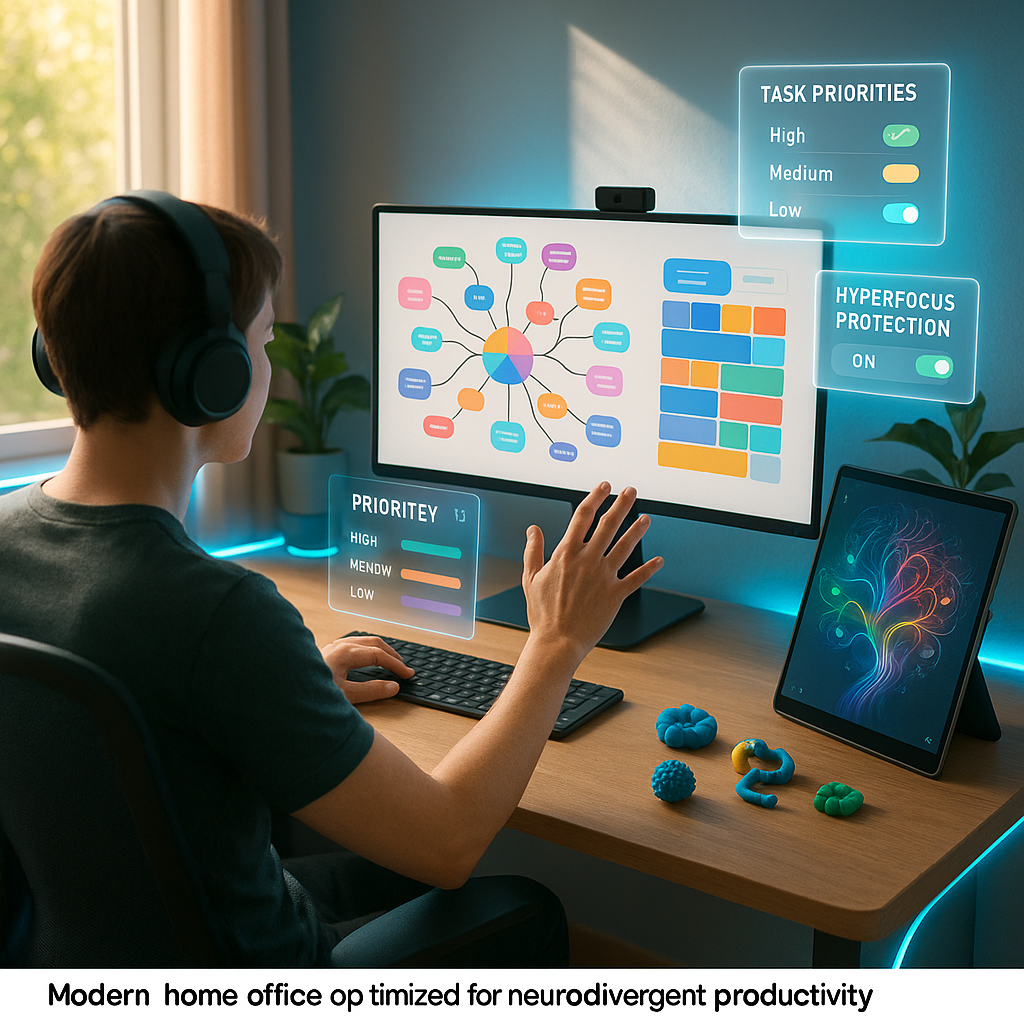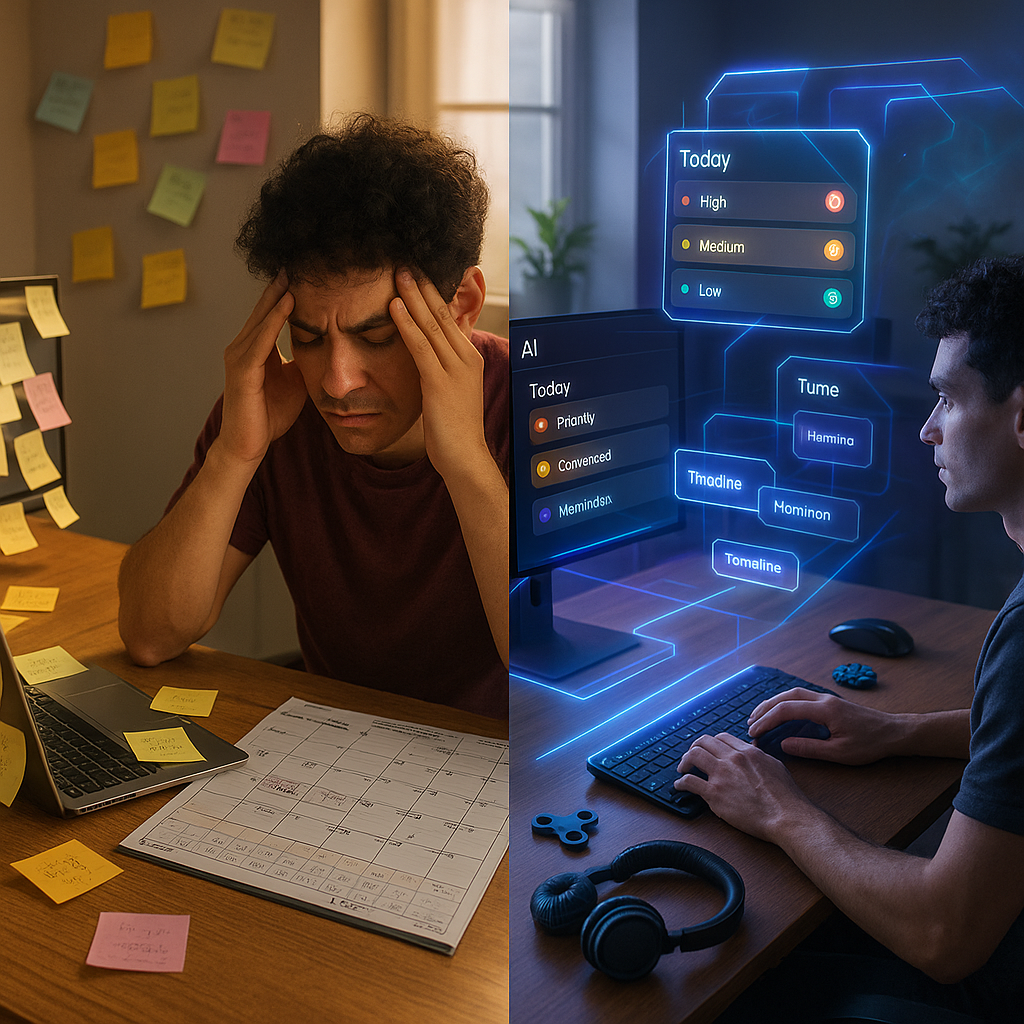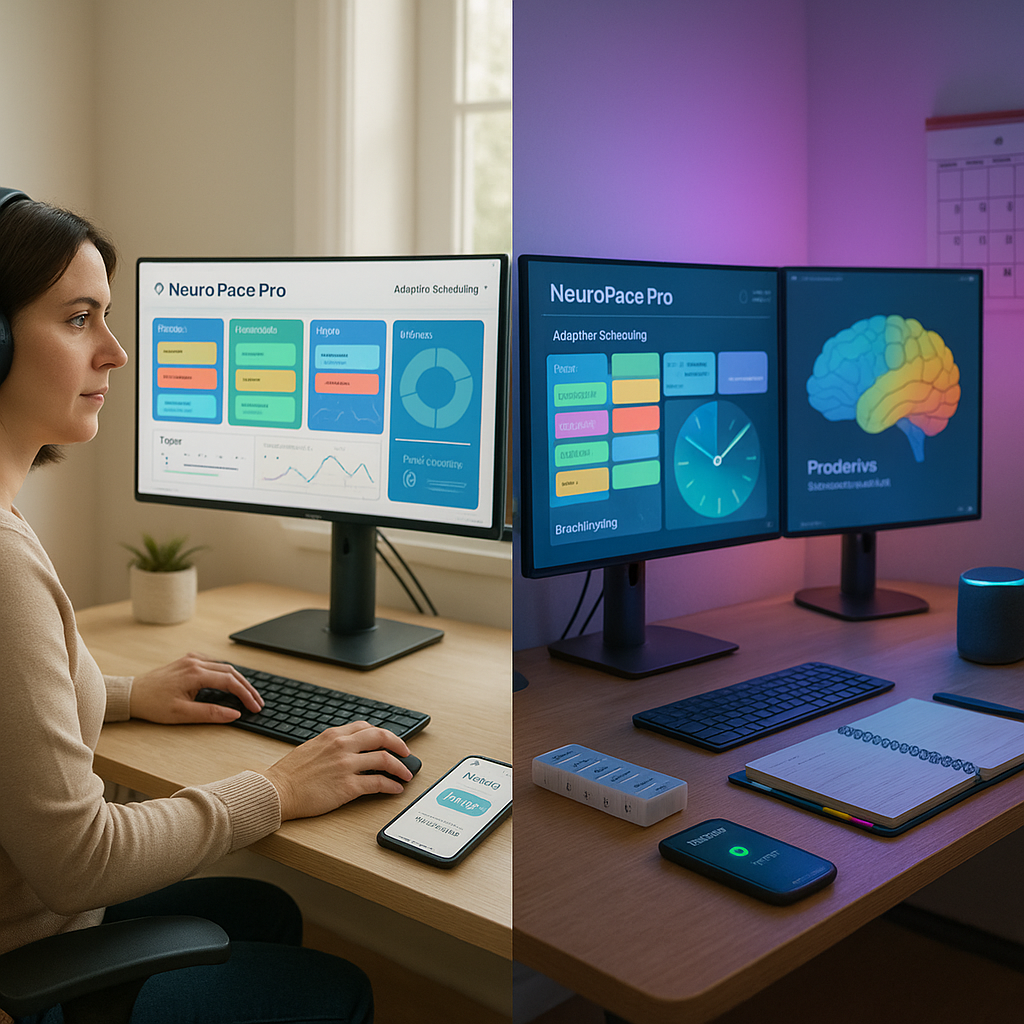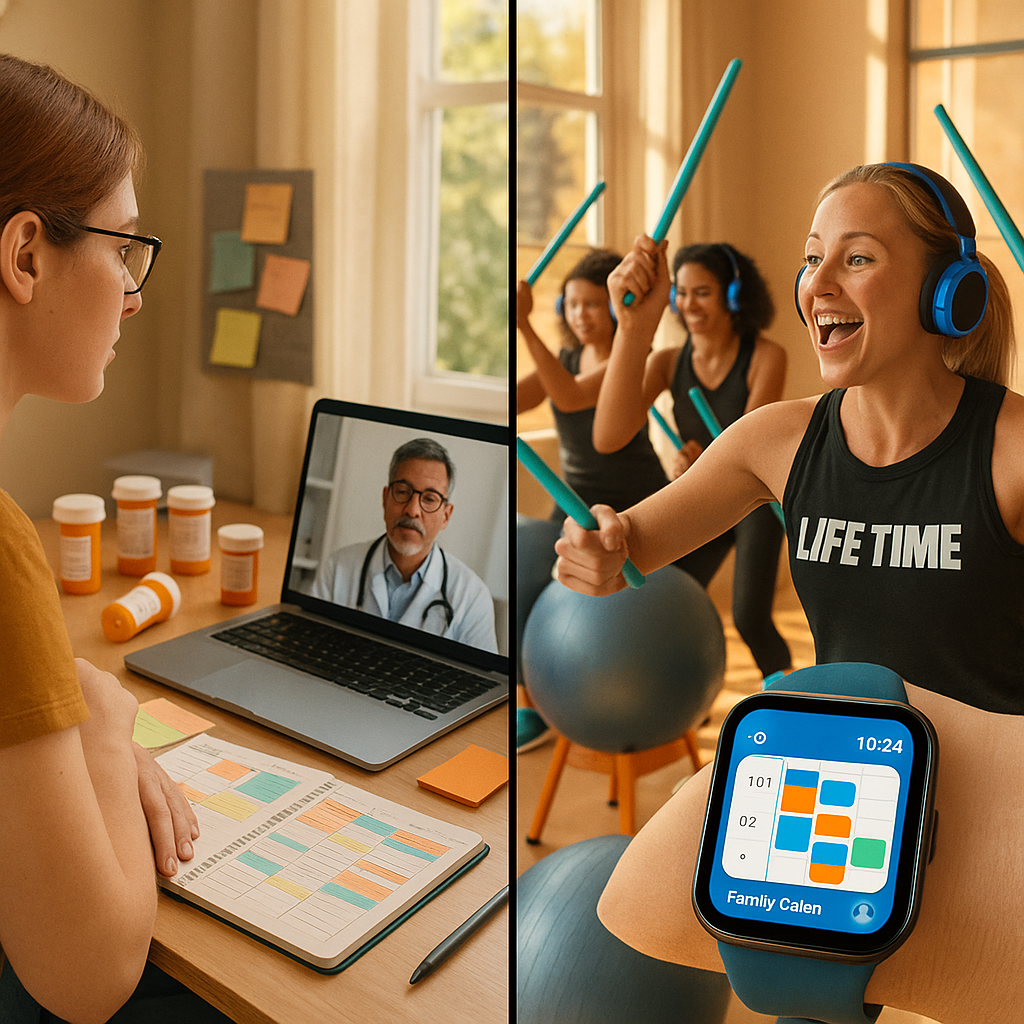Key Takeaways
- Tools emphasize strengths over deficits: New AI features highlight hyperfocus, creativity, and deep learning rather than attempting to “fix” perceived productivity gaps.
- Customization for neurodiverse work styles: Platforms now let users create workflows that suit their unique rhythms, helping reduce overwhelm and incomplete projects.
- Automation eases executive function struggles: Smart reminders, adaptive scheduling, and routine-building helpers address common issues like task initiation and follow-through.
- Lived experience informs development: Many AI tools are created by neurodivergent founders, leading to authentic and relevant solutions instead of one-size-fits-all products.
- Investment and adoption accelerating: Companies are integrating ADHD-friendly workflows, with more partnerships and features expected this year.
Introduction
AI productivity tools are evolving rapidly, as startups and tech giants develop customizable features tailored to the strengths of neurodivergent professionals, such as hyperfocus and creative thinking. By moving away from efforts to “fix” deficits and instead empowering authentic work styles, these tools help users leverage ADHD traits as valuable assets for personal and professional growth.
How AI Tools Are Empowering Neurodivergent Strengths
AI productivity tools are increasingly focused on leveraging neurodivergent cognitive strengths rather than correcting them. This marks a significant shift in how technology supports neurodiversity.
For instance, Motion’s AI task manager detects when users enter hyperfocus and automatically adjusts notifications to protect these periods of deep concentration. According to Motion’s lead designer Sarah Chen, the company built around users’ hyperfocus strengths after observing their exceptional results during these sessions.
Visual thinking features in tools like Miro’s AI assistant cater to non-linear ideation. The assistant generates mind maps and visual frameworks, aligning with how many neurodivergent individuals naturally process information.
Personalization Through Machine Learning
AI-powered applications are adapting to individual work styles, moving beyond rigid productivity systems. Todoist, for example, analyzes task completion patterns and suggests optimal scheduling based on each user’s natural rhythms and energy levels.
Dr. Maya Rodriguez, a cognitive psychology researcher, stated that traditional productivity approaches often fail neurodivergent people. Machine learning offers tools that adapt to how someone naturally works best.
Personal analytics dashboards in apps like RescueTime allow users to identify their peak performance periods without judgment. This data helps users make informed choices about when to handle various tasks.
Real-World Impact and User Experiences
Software developer Alex Chen reported increased productivity and job satisfaction after switching to AI-enhanced tools. He shared that, instead of resisting his brain’s natural tendencies, he now uses technology that works with them.
Similar experiences are found across industries. A WorkTech Analytics survey found that 73% of neurodivergent professionals noted significant improvements in task completion when using AI tools that adapted to their working style.
The benefits of adaptive AI extend to organizations as well. Companies that implement these tools report enhanced team collaboration and reduced workplace stress among neurodivergent employees.
Future Developments in Adaptive Technology
Major tech company research labs are developing more advanced ways to support neurodivergent users. Microsoft’s Inclusive Design team is working on AI systems that recognize and respond to signs of executive function challenges in real time.
Startups are identifying specific neurodivergent traits as opportunities for innovation. Calendar AI, for example, applies machine learning to support users with time blindness by providing dynamic scheduling suggestions and visual time management aids.
Open-source initiatives are advancing as well. Groups like the NeuroTech Alliance, composed of neurodivergent developers, are creating customizable AI frameworks that support various cognitive styles.
Conclusion
AI productivity tools are moving beyond simple accommodation, instead empowering neurodivergent strengths to foster authentic workflow improvements and better team collaboration. As companies and user-led collectives champion more personalized solutions, adaptive technology is becoming central to inclusive productivity. What to watch: upcoming releases and pilot programs from both established tech teams and startups that aim to address executive function and time management challenges.





Leave a Reply